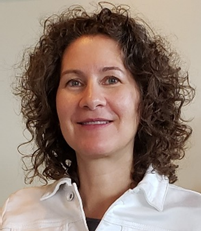Posted • Last updated
Closed
Open to Fraser – Vancouver Coastal, Patient partners in the Lower Mainland & Fraser Valley
Last updated
Are you interested in how new parents and families make choices in pregnancy and childbirth? Join a parent advisory group and brainstorm with researchers about important issues that should be looked at in pregnancy and childbirth research.
Open to: Patient partners in the Lower Mainland & Fraser Valley
Lead Organization or Department
Centre for Health Evaluation and Outcome Sciences (CHÉOS), Perinatal HealthAim
The goal of this engagement is to create a parent advisory group that will help guide a perinatal health research program at the Centre for Health Evaluation and Outcome Sciences (CHÉOS) UBC. The parent advisory group will collaborate with researchers on a number of new and ongoing projects on pregnancy and childbirth. They will meet with the research team to consider research project ideas, how to recruit participants, brainstorm ways to collect and analyze data, understand what the results might mean to families and the public, and consider how to communicate study results to the public.Level of Engagement
This opportunity is at the level of collaborate on the spectrum of engagement. The promise to you is that the health care partner will work together with you to formulate solutions and incorporate your advice and recommendations into the decisions to the maximum extent possible.Eligibility
If you have a strong interest in this work but have not yet completed a PVN orientation and volunteer agreement, are unsure if your experience is a good fit or feel another format of engagement would work better with your availability, please contact Karen Estrin directly.Logistics
- Vacancies: 10-20
- Date and time: Bi-monthly (every other month) in-person meetings of about 30 minutes up to 2 hours in length, depending on the meeting. Scheduling details will be worked out with partners and the researchers as needed.
- Location: In-person meetings will be held in Vancouver, but we will also make it possible for partners to attend remotely via teleconference or Skype if needed.
- Commitment: This group will meet for the long term, but we ask that parent partners commit to participate for at least 6 months (3 meetings) but are welcome to stay longer. We are planning that this will be a permanent group that will provide ongoing feedback for multiple perinatal projects. We understand that members may become ineligible over time (as their children age out of our eligible criteria of <5 years) or decide to drop out, so the plan is continued recruitment by our team to maintain this group.
Reimbursement
Typical out-of-pocket expenses such as parking and mileage to attend in-person meetings will be reimbursed. We welcome the opportunity to discuss with parent advisory group members other potential expenses as needed.Background
We conduct studies that explore how parents and families make choices in pregnancy and childbirth. This research can help change health care professional practice, policies for person-centred care, and resources to support families. Having a parent advisory group will help ensure that our research is addressing issues relevant to parents and families. Here is a sample of the current studies that our parent advisory group might support: • New science suggests that a healthy ‘gut microbiome’ is important for babies and children. Are documentaries and short films a good way to share this new science with families, especially those with very young children? • Families struggle to make informed choices about breastfeeding their newborns. What resources can help health care providers to support these choices in a supportive, non-stigmatizing way? • After a caesarean section, families may not get all the information they need about their options for future births. What health system changes need to happen so that families can have high-quality discussions about caesarean and vaginal birth?Health Care Partner Contact Information
Lawrence (Larry) Mróz, PhD
Research Navigator & Patient Engagement Coordinator
236-521-2065
Lmroz@bcsupportunit.ca

